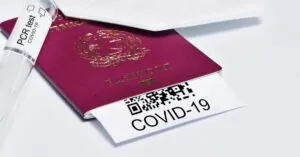Table of Contents
ToggleIn today’s fast-paced world, the idea of earning a business degree online sounds as appealing as a double shot of espresso on a Monday morning. But how long does it actually take to turn that dream into reality? The answer isn’t as straightforward as a simple “two years” or “four years.” It depends on a variety of factors, including your pace, program structure, and even your penchant for procrastination.
Understanding Online Business Degrees
Online business degrees offer flexibility and accessibility for students balancing various commitments. Programs typically range from associate degrees to master’s degrees, catering to diverse career goals. An associate degree usually takes two years to complete, while a bachelor’s degree generally requires four years. Students often find that accelerated programs can shorten this duration.
Structured formats play a significant role in determining how long it takes to complete a degree. Many schools provide both full-time and part-time options. Full-time students may finish their studies faster, while part-time students often take longer, especially if they juggle work or family responsibilities alongside their coursework.
Curriculum requirements influence duration as well. Core courses cover essential topics like finance, marketing, and management, while electives allow for specialization. Students who transfer credits from other institutions may expedite their education. Additionally, dual-degree programs combine business with other disciplines, potentially increasing the overall time commitment.
Procrastination affects completion rates too. Students who develop effective study habits and time management skills may see quicker progress. On the other hand, those who struggle with procrastination often face delays. Engaging with course materials and interacting with instructors can enhance understanding and motivation.
Ultimately, the time to obtain an online business degree is highly individualized. Setting clear academic goals and maintaining consistent progress helps students navigate their educational journey effectively. Work commitments, in conjunction with personal responsibilities, can significantly impact the time frame for earning a degree.
Factors Influencing Duration
The time required to earn an online business degree hinges on several key factors. Understanding these aspects helps students estimate their educational timelines more accurately.
Program Type
Different program types significantly affect completion time. An associate degree typically requires two years, while a bachelor’s degree generally spans four years. Accelerated programs often shorten these durations, allowing students to graduate faster. Additionally, master’s programs vary in length, averaging one to two years depending on the institution and curriculum. Choosing between a fully online format, hybrid model, or traditional in-person classes can also impact timeframes. Each format provides unique advantages for balancing commitments and learning preferences.
Course Load
Course load determines how quickly a student progresses through their program. A full-time course load usually consists of 12 to 15 credits per semester, allowing for faster completion. Part-time studies often mean fewer credits, extending the time needed to graduate. Students selecting additional electives or minors may also lengthen their journey. Furthermore, taking breaks between semesters affects the timeline as well. Finding the right balance between course load and personal commitments leads to optimal academic performance and quicker degree attainment.
Typical Timeframes for Completion
Completing an online business degree involves varying timeframes based on several factors. The type of degree pursued significantly impacts the duration of the program.
Associate Degree
An associate degree in business typically requires two years of full-time study. Students often take around 60 credit hours, including core courses in accounting and marketing. Some programs offer accelerated options that allow for quicker completion. Students can transfer existing credits, potentially shortening their time in the program further. This flexibility suits those balancing work or family commitments.
Bachelor’s Degree
A bachelor’s degree usually takes about four years to finish, with most programs demanding 120 credit hours. Full-time students manage a standard course load of around 15 credit hours per semester. Hybrid or fully online formats provide additional flexibility, enabling students to tailor their schedules. Accelerated bachelor’s programs exist, which allow dedicated students to graduate in as little as three years. Electives and minors can be incorporated, but this may extend completion time.
Master’s Degree
Earning a master’s degree in business typically spans one to two years. Students need to complete approximately 30 to 60 credit hours, depending on the program specifics. Full-time students usually achieve quicker completion, while part-time options accommodate those with professional obligations. Some institutions offer accelerated formats that lead to faster graduation. Course availability and scheduling also influence the total time required to obtain this advanced degree.
Accelerated Programs and Their Benefits
Accelerated programs provide an option for students wanting to fast-track their online business degrees. Completing a degree in this format often reduces the time needed, allowing students to finish in as little as 18 months for bachelor’s degrees or 1 year for master’s degrees. By condensing coursework and offering intensive study periods, these programs cater to ambitious learners.
Flexibility stands as a significant benefit of accelerated programs. Students often attend classes weekly and may opt for asynchronous learning, making it easier to balance education with work and family responsibilities. Many institutions also provide online resources that enhance the learning experience.
Curriculum design in accelerated programs typically features core courses that maintain relevance. Courses cover crucial subjects such as finance, marketing, and management, while some electives allow for tailored specialization. Engaging with practical projects further enhances understanding and application of theoretical concepts.
Students benefit from shorter completion times. Individuals enrolled in accelerated programs frequently experience an increase in motivation. Completing courses quickly creates a sense of achievement, reinforcing a positive feedback loop that drives further success.
Financial implications also come into play. Accelerated programs can potentially reduce tuition costs by enabling students to graduate sooner and enter the workforce. Job placement assistance offered by many institutions enhances employability, empowering graduates to secure positions in competitive fields.
Incorporating an accelerated path into their education can yield substantial benefits. Students gain valuable skills in a timely manner and position themselves advantageously in the job market. Those committed to their studies often discover that an accelerated online business degree leads to a rewarding career trajectory.
Earning a business degree online presents a unique opportunity for individuals seeking flexibility and growth in their careers. The time it takes to complete such a degree varies widely based on personal circumstances and program structure.
Whether pursuing an associate, bachelor’s, or master’s degree, students can tailor their educational journey to fit their lives. Accelerated programs offer a fast track for those eager to enter the workforce sooner, while part-time options provide a manageable pace for those balancing other commitments.
Ultimately, by setting clear goals and maintaining consistent progress, students can navigate their educational path effectively and achieve their aspirations in the business world.




